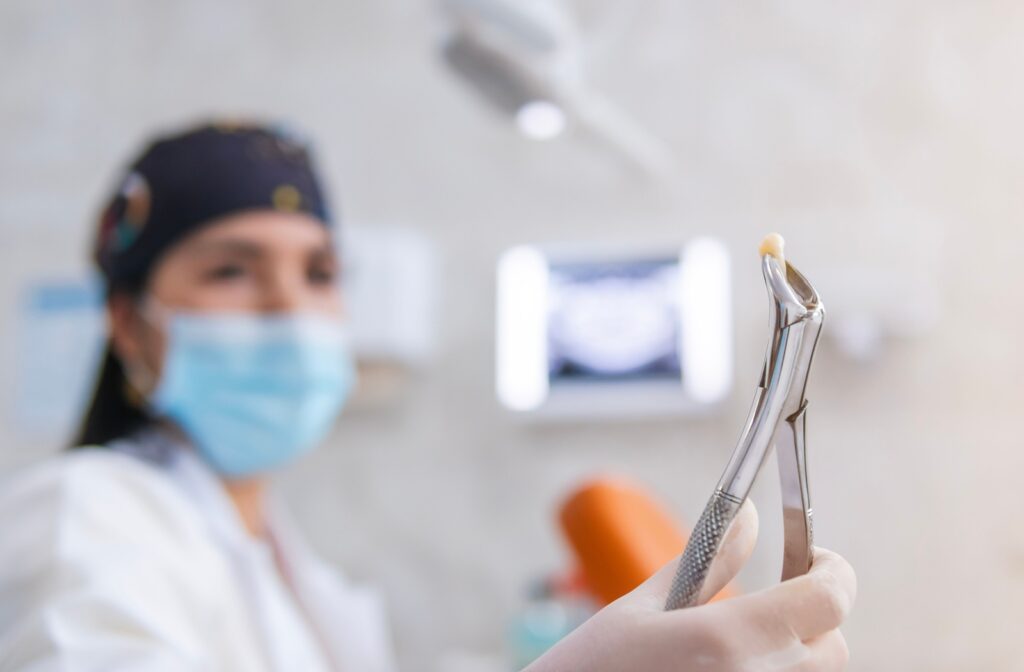Getting your wisdom teeth removed can feel like a major relief, especially if your wisdom teeth have been causing pain or crowding your other teeth. However, even after the surgery, you’ll still have work to do, as proper aftercare is essential to ensuring a smooth recovery. By taking the right steps, you can promote healing, minimize discomfort, and reduce the risk of complications such as dry socket, infection, or prolonged swelling.
Follow your dentist’s instructions carefully after a wisdom tooth extraction. Focus on rest, and avoid strenuous activities. Having a clear understanding of what to do and what to avoid after a wisdom tooth extraction can make a big difference in how quickly and comfortably you heal.
Understanding Wisdom Tooth Extraction
Not all extractions are the same. Wisdom tooth removal depends on the position and condition of your teeth. Here are the main categories:
- Simple Extraction: For fully erupted wisdom teeth that are easy to access and remove.
- Surgical Extraction: When the tooth has erupted but extraction involves soft tissue exposure and possibly bony alteration or sectioning of the tooth to safely and easily remove it.
- Partial Impaction: When only part of the wisdom tooth is visible above the gumline.
- Partial Bony Impaction: When the tooth is partially trapped within the jawbone.
- Full Bony Impaction: When the tooth is completely encased in the jawbone and requires a more complex surgical approach.
Your dentist or oral surgeon will explain which type of extraction you need and what that means for your recovery.
Dos After Wisdom Tooth Extraction
Taking the right steps after your procedure can make a world of difference. Let’s have a look at what you should do.
Follow Medication Guidelines
Follow your dentist’s instructions when using prescribed or over-the-counter pain relievers. Avoid opioids, unless they’re explicitly prescribed by your dentist. Most people find pain relief with non-opioid options.
Promote Healing
Allow blood clots to form over the extraction site, and leave these clots undisturbed. Clotting plays a vital role in protecting the extraction site and promoting gum healing.
Stay Hydrated & Eat Soft Foods
Stay hydrated by drinking plenty of water, but avoid using straws, as the suction can dislodge blood clots and hinder the healing process. For the first few days, stick to a soft diet with gentle, easy-to-eat options like soups, yogurt, mashed potatoes, and similar foods.
Dont’s After Wisdom Tooth Extraction
Knowing what to avoid is just as important as knowing what to do. Here are the top things you should steer clear of while you’re still healing up.
No Brushing or Rinsing the Area for 24 Hours
For the first 24 hours after your procedure, you shouldn’t brush or rinse the area. Afterwards, you can gently rinse the extraction site with saltwater. Your dentist can provide you with saltwater syringes to use for rinsing after meals.
Avoid Smoking or Using Straws
Smoking or using straws creates suction in your mouth, which can dislodge blood clots from the extraction site. This can lead to dry socket, a painful condition that delays healing. It’s best to avoid these activities entirely and give your gums the time they need to recover properly.
Skip Vigorous Physical Activity
Strenuous exercise or physical activity can increase blood pressure, leading to more bleeding and swelling in the affected area. It’s important to take it easy for a few days following your procedure. Focus on rest and light activities to give your body the energy it needs for healing before resuming your normal exercise routine.
Common Post-Operative Issues & How to Handle Them
Even with the best care, some issues might arise after your procedure. It’s important to know what to look out for and when to seek help to ensure a smooth recovery. Here’s what to keep an eye on:
Prolonged Bleeding
Bleeding is normal after a dental procedure, especially in the first 24 hours. To manage it, bite down on gauze or a moistened tea bag for 30 minutes—the tannic acid in tea helps clotting. If the bleeding doesn’t stop or worsens, contact your dentist immediately.
Numbness
Temporary numbness in the lips, tongue, or chin is common after anesthesia and usually resolves within a few hours, though it can take up to a day. If numbness lasts longer or feels unusual, contact your oral surgeon to rule out nerve issues.
Pain or Discomfort
Mild discomfort is normal and can be managed with over-the-counter pain relievers or ice packs. If the pain is severe, worsening, or unresponsive to medication, this may indicate complications like infection or dry socket. In such cases, see your dentist promptly.
Your Path to a Healthy & Confident Smile with Kensington Dental Care
Every person’s recovery process is unique and can vary based on the type of procedure and individual health factors. It’s normal to have some discomfort or mild swelling, but if you experience any unusual concerns, prolonged pain, or complications during your healing period, don’t hesitate to reach out to your dentist or oral surgeon. They can provide guidance, reassurance, and any necessary follow-up care to ensure your recovery stays on track.
At Kensington Dental Care, we care about your well-being and are here to support you every step of the way. Our team is committed to providing personalized care, clear guidance, and follow-up appointments to make your recovery smooth and worry-free. Schedule your appointment today—we’re ready to take care of you.










